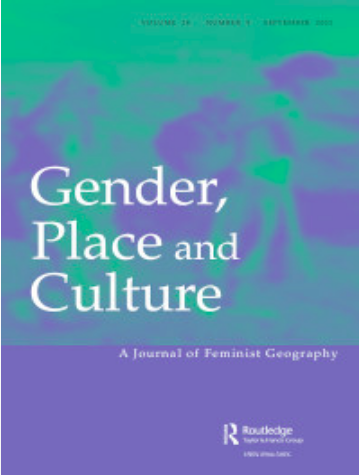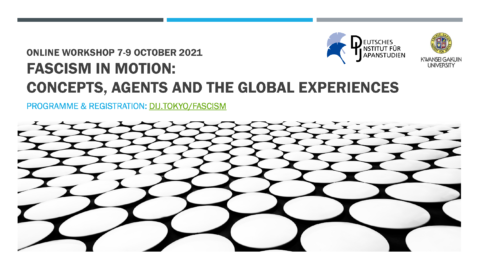Veranstaltungen und Aktivitäten
Fifth Web Forum Series ‘DT’ session on History and the Digital Age

Andreas Fickers (Luxembourg Centre for Contemporary and Digital History) will be the speaker in the fifth session of our MWS Web Forum Series ‘The Digital Transformation’ on October 28. His presentation „What the D does to History – The Digital Age as a New Historical Time Regime?“ will focus on the interface between theory and practice, conceptual penetration and methodological reflection of historical scholarship in the digital age. It will discuss the tensions between a discipline based on 19th century methodological foundations and the radically changing knowledge economy of the 21st century. These tensions force historians to rethink and adapt central concepts and practices of thinking and doing history – including the question of the temporal regime of the digital which will be at the heart of this lecture. Details and registration here
Fourth Web Forum Series ‘DT’ session on the Future of Society

Yuko Harayama (RIKEN), Dietmar Harhoff (Max Planck Institute for Innovation and Competition), and Ulrike Schaede (University of California San Diego) will be the speakers in the fourth session of our MWS Web Forum Series ‘The Digital Transformation’ on October 21. Its focus will be on ‘The Future of Society – National Ambitions and Strategies’. Yuko Harayama’s paper „How to use ‚Society 5.0‘?“ will introduce the concept and explain its use in Japan and the interest it has attracted abroad. In his presentation „Reconsidering German National Strategies towards Digitalization“, Dietmar Harhoff will focus on the government’s strategic plan ‚Industrie 4.0′, its national AI strategy, and initiatives to accelerate the digitalization of the public sector. Ulrike Schaede’s paper „National Differences in Preparing for the Digital Disruption: Markets v. Industrial Policy“ will compare Japan’s reliance on industrial policy, the US‘ focus on markets and private initiatives, and Germany’s in-between position. Details and registration here
DIJ lecture on female rakugo performers on Tokyo’s stages
さんのプロフィールページ-480x274.png)
When talking about traditional Japanese stage-arts, many think of men in kimono. In most stage arts, to this day, female performers are either not trained at all or trained but not accepted to perform in their respective schools’ main stages. Today, about 5% of Tokyo’s rakugo performers are female and most enjoy a big fan following. However, the portfolio of rakugo stories has been created by men for mostly male audiences. This presentation gives an historic overview of the development of the involvement of female performers on Tokyo’s yose stages and discusses the different approaches they take on-stage, particularly looking into issues such as modification of stories, voice, tone, appearance and stage persona. This session of the DIJ History and Humanities Study Group is part of the DIJ Gender and Sexuality in East Asia Lecture Series. Details and registration here
Speaker:
Sarah Stark, University of Ghent
Web Forum Series ‘DT’ on Data Infrastructures and Open Science

Miho Funamori (National Institute of Informatics), Jeroen Sondervan (Utrecht University), and Helmuth Trischler (Deutsches Museum and Ludwig Maximilian University of Munich) will be the speakers in the third session of our MWS Web Forum Series ‘The Digital Transformation’ on October 14. This session’s focus will be on ‚Data Infrastructures and Open Science‘. Miho Funamori’s paper „Who owns research data at universities?“ will provide an analysis of research data management practices and policies from the perspective of university management. In his presentation „Notions on the differences in form and speed of the transformation to Open Science in Europe“, Jeroen Sondervan will give an overview of open science policy developments in Europe and will take the developments at Utrecht University as an example. Helmuth Trischler’s paper „Why and how should we establish research data infrastructures in the historical sciences?“ will present recent initiatives to create research data infrastructures according to the FAIR principles in Germany. Details and registration here
Barbara Holthus gives talk on Tokyo Olympic volunteers at Princeton University

DIJ deputy director Barbara Holthus will give an online talk on her research into Tokyo Olympic volunteers at Princeton University. Her presentation „Smiling behind the mask: Tokyo Olympics and its volunteers“ on Thursday, October 14, 8 a.m. JST is sponsored by Princeton’s East Asia Studies Program. In her talk, Barbara will particularly focus on the Field Cast – the Olympic and Paralympic volunteers. Volunteering was supposed to get a huge boost in popularity in Japanese society. Yet thousands of volunteers either were let go due to the ban on spectators, or they quit their (unpaid) jobs. Fieldwork through participant observation highlights the heterogeneity of those volunteers that remained, shedding light on their motivations and dreams – and what they took away from the experience. For more information on research related to the Olympics, see the DIJ’s special project on the Tokyo Olympics and the open access book publication Japan Through the Lens of the Tokyo Olympics.
Journal article explores living arrangements of unmarried adults

Staying unmarried and not starting a nuclear family is increasingly common around the globe. At the same time, living arrangements are diversifying. A new journal article by DIJ social scientist Nora Kottmann investigates the relationship worlds of unmarried adults through and in relation to their living arrangements. Based on a qualitative study of unmarried individuals in Tokyo and Kyoto, „Living (alone) together in metropolitan Japan: shifting boundaries of dwelling, relating, and belonging“ offers insights into how the emergence of a so-called ‚Hyper-Solo-Society‘ in Japan is interwoven with the diversification of living arrangements. By identifying changing perceptions of home and belonging, Nora’s article contributes a new perspective to current global debates on ’singles‘ and their practices of relating and belonging at the intersection of gender, mobility, and space. The article was published online first in Gender, Place & Culture. A Journal of Feminist Geography and can be viewed here
DIJ researchers discuss Olympic legacy at online workshop

The Tokyo Olympics 2020 are history but two months after the closing ceremony it is far from clear what remains as their legacy: have they spread the virus or the Olympic message? Have they uplifted Japan and further aggravated Japan’s identity crisis? DIJ deputy director Barbara Holthus („Tainted Love: Volunteering for the Pandemic Olympics“) and principal researcher Sonja Ganseforth („From ‚No Olympics 2020‘ to ‚NOlympics Anywhere‘: Reflecting on the Anti-Olympic Movements in Japan before and after Tokyo 2020/1“) will share their insights into how Tokyo 2020 has transformed Japanese society at the online workshop Post-Olympics Japan: Renewal or Failure? Barbara will also be a panelist in the workshop’s closing panel discussion on „What Remains?“. Both are contributors to the DIJ’s special project on the Tokyo Olympics and the open access book publication Japan Through the Lens of the Tokyo Olympics. The workshop is organized by the German Institute for Global and Area Studies, the University of Zurich, and the German Association for Social Science Research on Japan. Details and registration here
Workshop on concepts, agents, and global experiences of Fascism

Beyond the cases of Italy and Nazi Germany, a variety of patterns of fascism and authoritarianism took shape as responses to the unprecedented economic slump and social unrest during the interwar period. However, mainstream studies of fascism still have their focus on European cases. By shedding light on regions that remain underrepresented in studies of fascism, this three-day online workshop aims to trace the border-transcending circulation of ideas and concepts derived from fascism and to grasp its transnational character. With the case studies zooming in on regions such as China, Japan, India, Cambodia, Thailand, Brazil, and Romania, this workshop showcases the large-scale border-crossing movement of concepts and explores the multi-layered intellectual inspirations of agents from various backgrounds. The workshop is organized by the DIJ in cooperation with the School of Humanities, Kwansei Gakuin University. Details and registration here








 Open Access
Open Access 
